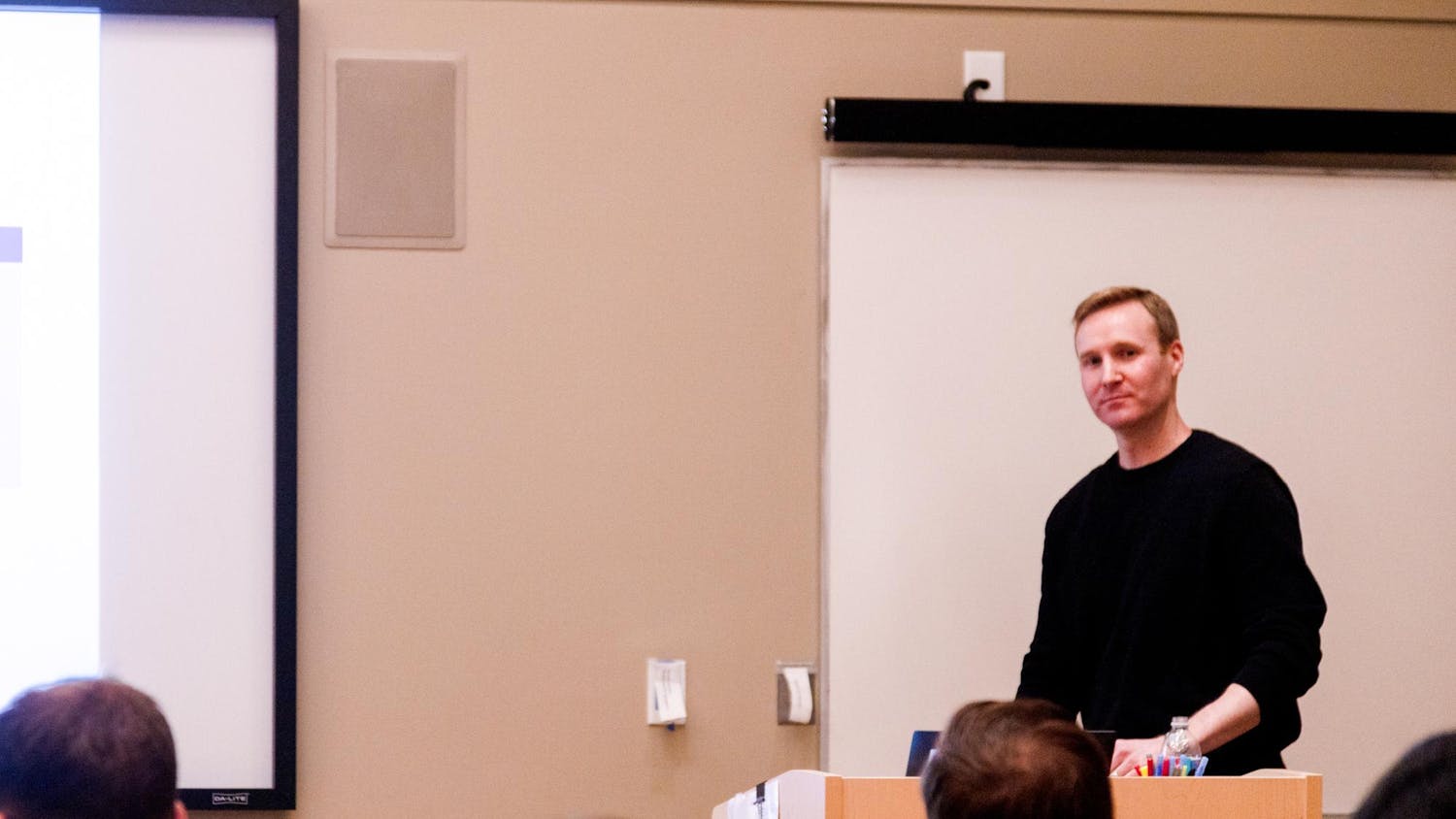A scholar of one of the mystical traditions of Hinduism, Swami Atmarupananda of the international Ramakrishna Order of Monks, led four guided meditations Sunday centered around the theme "Who am I? The Search for the Self" as part of the Sixth Annual Mary Interlandi '05 Lectureship. The event, held in J. Walter Wilson, was organized by the Office of Chaplains and Religious Life and the Year of India.
Atmarupananda, who is from California, studies Vedanta, a philosophy of self-knowledge.
"The four meditations were designed to point to something in our present experience which is the ultimate reality," Atmarupananda said. He will give a lecture Monday on the history, philosophy and methods for the search of the self.
Many of the approximately 20 participants had a background in Buddhism, he said.
Having been a monk in America for forty years, Atmarupananda said he has observed major changes in peoples' attitudes toward and appetite for spirituality. In the 1960s, "many young people were interested in seeking a spiritual path just for spirituality's sake," he said. "Nowadays, their entry is somewhat different. They are looking for connections.
They're interested in environment, social justice and so forth. Spirituality is connected to that."
Founded in 1897 by Swami Vivekananda, the Ramakrishna Order reinterprets Hinduism for modern times. "Hinduism is a living tradition that has always met the changing times," Atmarupananda said.
The Ramakrishna Order maintains several centers in India itself. "In India, our centers are involved in a great deal of work for the poor and the distressed as part of our spiritual process," he said. "In the West, we do more teaching work." While people less frequently choose to become monks in America, Atmarupananda said the order is growing rapidly in India.
The interest in the order remains strong in both the East and West, he said.
"The view of our tradition is that religion is really one," he said, and as a result, Ramakrishna monks maintain connections and dialogue with people of other faiths.
"I have been challenged, certainly," he said. "Most people give at least a sympathetic hearing."
Atmarupananda said he attempts to make Vedanta accessible to people, especially Western audiences, with a range of backgrounds and needs. "It's something everybody can understand," he said. "It's a question of explaining it in the language people can understand."
"Every aspect of life affects the search for truth," he said. "The goal is to find a way of making everything a spiritual practice."




